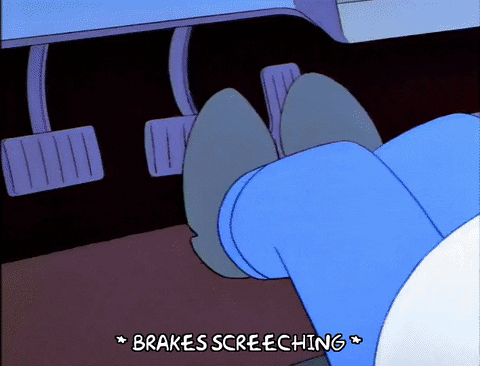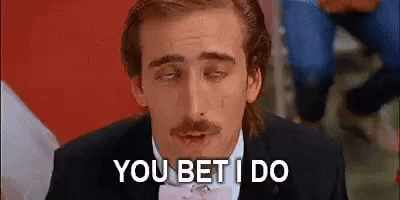Had I not gotten sick
Do you ever wake up in the early hours of the morning, either for the day or just temporarily, and have some of the clearest and most profound thoughts of your whole day?
This has always happened to me since as far back as I can remember, but in the aftermath of COVID-19, the clarity has been in such stark contrast to the hour-by-hour descent of my brain into what feels like a tub full of molasses that characterizes the rest of my day.
It was one such morning when I woke up thinking deeply about the ways in which having Long COVID has made my life better.
Wait…….WUT?
You contracted a brand new, fire-breathing, oxygen-depriving, muscle-eating (more on that later), career-wrecking, hobby-slaying, gaslight-inducing, wholly misunderstood virus, lived to tell, and you want to talk about how life got better??
As I lay in bed thinking about it, the phrase, “had I not gotten sick,…” popped into my head and I thought, “I have to write a post about this.”
How many times have those of us with these life-changing illnesses - not just the chronic ones, but the ones that really shift your mindset about life - thought about the regrets of getting sick?
“Had I not gotten sick, I would have been up for that promotion.”
“Had I not gotten sick, I would have gone to see the pyramids.”
“Had I not gotten sick, I (we) could have had that second (third, fourth) child (cat).”
Our brains, after all, are wired for negativity, putting more weight on negative experiences than positive ones. Scientists believe we have evolved with this bias as a protective measure to keep us out of harm’s way. So having these kinds of thoughts about your sucky illness are a natural part of the human experience.
I’ll tell you that, while I have clung to hope so tightly over these last almost four years - reading all the studies, watching all the webinars, going to umpteen specialists (sometimes multiples of one specialty), and trying countless treatments - there have at times been some truly dark thoughts swirling around my head, especially in the first few years, when answers to “why me?” and “what’s really wrong with me?” and “am I going to die?” were in short supply.
Turns out the only way to get to the other side of grief is through it. I should have known this already, having lost my father when I was 17 and my mother when I was 24, and, after years of infertility treatments, having lost my one and only pregnancy just two weeks in. But for me, each bout with grief only vaguely resembles its predecessors, especially when they cross categories (i.e. the death of a parent vs. the death of life as you know it).
I have never once moved through a profound loss in my life without the help of a skilled therapist, even if it took me several years to figure that out (as in the case of my father’s death). And so the losses associated with Long COVID and ME/CFS have been no different; I have had two excellent therapists that have helped me move, albeit in a non-linear fashion, through all the stages of grief (denial, anger, bargaining, depression, and acceptance). I have also read a lot of books about living with chronic illness (I’ll do a future post on this) and have processed a lot on my own.
While I still have days where I slip into one of the other stages, for the past year or so, I would say I’ve been pretty firmly planted in acceptance. Acceptance doesn’t mean rolling over and giving up; it means coming to some sort of peace with your reality. “Acceptance with a fighting spirit” is what Bruce Campbell calls it, because while I am mostly at peace, I am still motivated to try what I can to recover my health. (Bruce recovered from ME/CFS and has run great self-help site ever since).
My first therapist during this illness (well, the first one worth mentioning) was Jamie, who herself had lived with ME/CFS (I wrote a bit about her here). She would sometimes tell me (I’m paraphrasing), “Amy, you may not be ready to hear this now, but one day you will be able to see why you got an illness like this and you will appreciate what it has taught you.”
Seeing her for the most part on the ‘other side’ of ME/CFS and at peace, I bought into what she was saying - which is not to say that I’d ever be happy that I got this shitty illness, just that it hasn’t all been bad and some aspects of it have in fact been good (for me; long haulers are an incredibly heterogeneous bunch and I am fully aware that not all of us will find the good in this experience). But I would not have gotten to ‘good’ without Jamie’s help and the help of my current therapist (who I had to find because Jamie had a baby! And took a year of parental leave, because: Canada > U.S.).
I do believe that it is only when you have started visiting the land of acceptance that you can have any measure of gratitude for your illness, or for the ways it has changed your life for the better. Folks in recovery from addiction often talk about the kick in the rear they finally got, or what it meant to “hit rock-bottom.” The thing about grief or the rock-bottominess of addiction is that they involve a clear understanding of what’s at stake, of whom or what you love the most in your life that makes it worth living.
Positive thoughts, then, are not the brain’s default position, and so it can take a tremendous amount of work to overtake the negative ones and to start to regularly think more positively. Again, you have to be ready for this and a certain level of acceptance of your situation seems necessary.
(To be clear: I’m not talking about toxic positivity here, where you are force-fed positive thoughts you aren’t ready for or where the reality of your experiences are somehow dismissed or trivialized by others. It’s generally a bad practice to tell someone how they should feel; it centers you and not them).
Once you are feeling more and more ready, it’s sometimes easiest to start with a brief, daily gratitude practice; keep a journal by your bed and write down 3-5 things you were grateful for that day, ranging from “yummy berries in my oatmeal” to “had a normal BM today!” to “my husband scooped the litter box so I didn’t have to.”
Some of you are thinking, “fuck STRAIGHT off with this gratitude crap, woman.” I get it; I had days where I wanted to poop on gratitude (without even being grateful for the BM). If gratitude is a bridge too far, then start with noticing small joys during your day: the branches or birds outside of your window, the warm socks you have on, a purring cat, etc. Make a habit of it and you may see that over time, it does get easier to notice bigger and bigger joys and then to perhaps move toward gratitude.
To continue this article, please click here.






